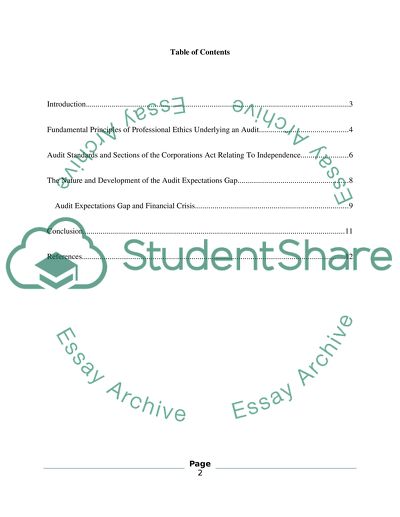Cite this document
(“In market societies, auditors are remunerated by the client company Essay”, n.d.)
In market societies, auditors are remunerated by the client company Essay. Retrieved from https://studentshare.org/finance-accounting/1691017-in-market-societies-auditors-are-remunerated-by-the-client-company-rather-than-by-an-independent-body-this-inevitably-makes-them-dependent-upon-directors-for-their-fees-and-profits-auditing-firms-may-legitimise-their-status-by-appealing-to-profession
In market societies, auditors are remunerated by the client company Essay. Retrieved from https://studentshare.org/finance-accounting/1691017-in-market-societies-auditors-are-remunerated-by-the-client-company-rather-than-by-an-independent-body-this-inevitably-makes-them-dependent-upon-directors-for-their-fees-and-profits-auditing-firms-may-legitimise-their-status-by-appealing-to-profession
(In Market Societies, Auditors Are Remunerated by the Client Company Essay)
In Market Societies, Auditors Are Remunerated by the Client Company Essay. https://studentshare.org/finance-accounting/1691017-in-market-societies-auditors-are-remunerated-by-the-client-company-rather-than-by-an-independent-body-this-inevitably-makes-them-dependent-upon-directors-for-their-fees-and-profits-auditing-firms-may-legitimise-their-status-by-appealing-to-profession.
In Market Societies, Auditors Are Remunerated by the Client Company Essay. https://studentshare.org/finance-accounting/1691017-in-market-societies-auditors-are-remunerated-by-the-client-company-rather-than-by-an-independent-body-this-inevitably-makes-them-dependent-upon-directors-for-their-fees-and-profits-auditing-firms-may-legitimise-their-status-by-appealing-to-profession.
“In Market Societies, Auditors Are Remunerated by the Client Company Essay”, n.d. https://studentshare.org/finance-accounting/1691017-in-market-societies-auditors-are-remunerated-by-the-client-company-rather-than-by-an-independent-body-this-inevitably-makes-them-dependent-upon-directors-for-their-fees-and-profits-auditing-firms-may-legitimise-their-status-by-appealing-to-profession.


